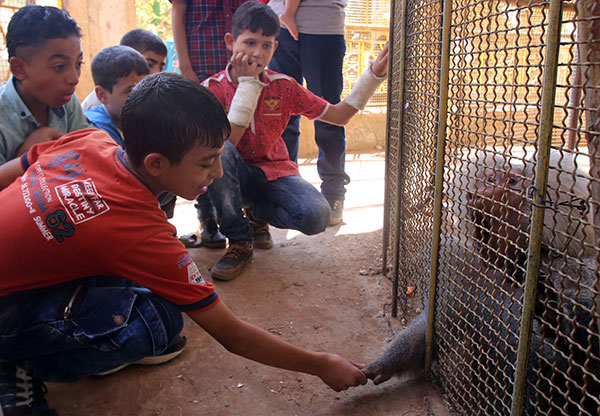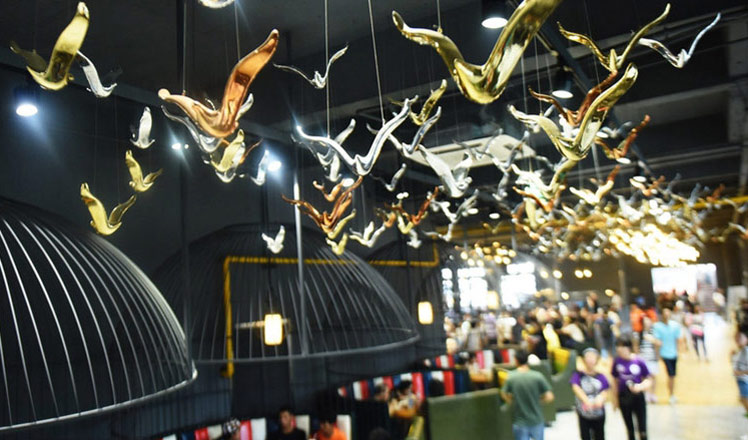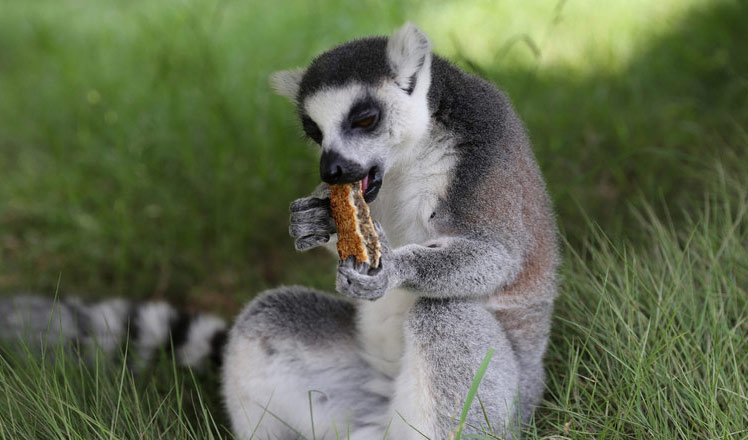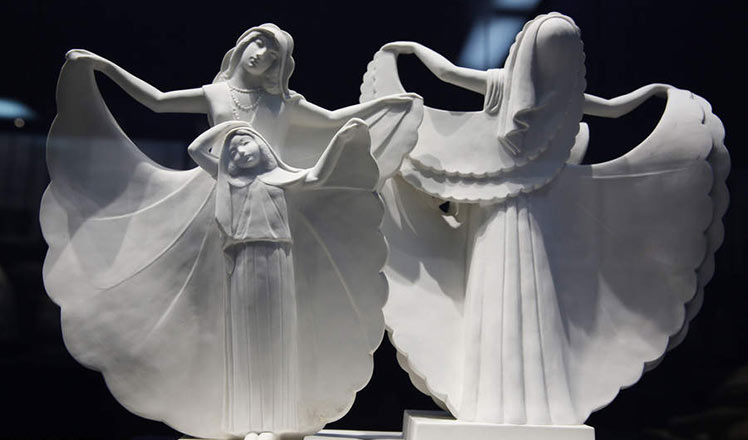Happy the monkey last survivor of zoo in Syria
Updated: 2016-09-17 06:59
(China Daily)
|
||||||||
 |
|
Saeed, whose name is Arabic for "happy", a 22-year-old hamadryad baboon, interacts with children at Sabil park in the government-held side of the northern Syrian city of Aleppo on Sept 14. YOUSSEF KARWASHAN/AFP |
At a rundown park near the front lines in the Syrian city of Aleppo, a fragile truce has brought out visitors to see the last animal left at a makeshift zoo-"Happy" the monkey.
The 22-year-old hamadryad baboon has been a much-loved attraction at Sabil park in the western portion of the city for years.
But the conflict since March 2011 that has split Aleppo between government control in the west and its rebel-held east has taken its toll on Saeed, whose name is Arabic for "happy".
"He's not as happy as he was before the war. He used to be cheerful and happy but now he seems old, and he's sad because he doesn't get visitors like before," said Abdullah al-Jaghal, his 52-year-old keeper.
Sabil park was once a major draw for residents of Aleppo, a former economic powerhouse that has been ravaged by the country's five-year conflict.
Its mini-zoo included other monkeys and peacocks that are now all dead.
As violence has raged across Syria, residents have stayed away for fear of the rockets and homemade missiles fired by rebels in eastern Aleppo, which itself is regularly targeted in government airstrikes.
The park bears some scars of the war, including a small pit left by a rocket impact, and the fighting has traumatized Saeed.
"Whenever Saeed hears the sounds of shelling or gunfire, he gets scared and tries to climb to the highest point in the cage," said Jaghal, who has cared for the monkey for the 18 years it has lived at the park.
"He's afraid of loud noises and when he gets scared, it takes him a long time to calm down again."
Even in the context of war, Saeed's enclosure is grim-a yellow-painted circular cage with nothing inside but a dirt floor sprinkled with remnants of food, including dried scraps of bread.
He walks around it with a chain and a small padlock around his neck, as adults and children watch him with interest.
"Our families have been coming since childhood to Sabil park to see Saeed and watch his acrobatics," said 35-year-old Bassam Primo, as his daughter handed the monkey a carton of juice.
"But with the war, he's gotten sick, and his wife died. After that he started to isolate himself and stopped interacting with visitors," he said.
Throughout the violence, which has killed over 300,000 people and displaced half of Syria's population, Primo kept visiting Saeed, often feeding him apples.
"But I found him depressed and sad," he said.
With the start of a truce negotiated by Russia and the United States, Sabil park was once again full this week.
AFP

 China launches second space lab into orbit
China launches second space lab into orbit
 Riding on smart cycles in Nanjing city
Riding on smart cycles in Nanjing city
 Britain records warmest September day since 1911
Britain records warmest September day since 1911
 Island retreats you may not want to miss for holidays
Island retreats you may not want to miss for holidays
 Industrial-style canteen surprises university students
Industrial-style canteen surprises university students
 Cute animals share a bite of moon cake festival
Cute animals share a bite of moon cake festival
 Orphaned Chinese marries American at SOS village
Orphaned Chinese marries American at SOS village
 French royal porcelains shine in Xi'an
French royal porcelains shine in Xi'an
Most Viewed
Editor's Picks

|

|

|

|

|

|
Today's Top News
Trump outlines anti-terror plan, proposing extreme vetting for immigrants
Phelps puts spotlight on cupping
US launches airstrikes against IS targets in Libya's Sirte
Ministry slams US-Korean THAAD deployment
Two police officers shot at protest in Dallas
Abe's blame game reveals his policies failing to get results
Ending wildlife trafficking must be policy priority in Asia
Effects of supply-side reform take time to be seen
US Weekly

|

|







